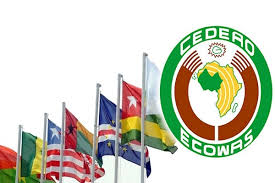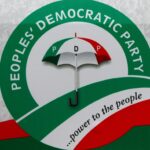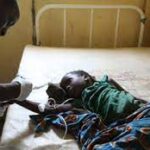By John Okeke
By way of retrospect , the Economic Community of West African States (ECOWAS) Parliament has a lot of issues that it has to contend with in 2021.
Some of these issues has put the parliament on its toes to perform optimally last year.
DIRECT UNIVERSAL SUFFRAGE : this is on of the issues that defined ECOWAS Parliament in 2021.
Aware of the important role that an elected parliament plays in facilitating people’s participation in regional governance, the Speaker of the Economic Community of West African States (ECOWAS) Parliament, Sidie Mohamed Tunis, made the election of members of parliament by direct universal suffrage the political flagship program of his term.
Durinh his address at the opening ceremony of the 1st Special Session 2021 of the Community Parliamentary in Freetown, Speaker Tunis expressed his commitment to the realization of this political ideal.
“Direct election by the people we serve gives leaders a sense of responsibility and makes them realize that they have been chosen by the people to play a patriotic and dedicated role,” he said.
In his speech at the opening of the inaugural Session of the 5th legislature on March 9, 2020 in Niamey, President Mahamoudou Issoufou of Niger, then Chairman of the Conference of Heads of State and Government, had strongly emphasized the need to elect Community MPs by direct universal suffrage.
“In order to strengthen your role in the ECOWAS region, we must accelerate your election by direct universal suffrage. This will give more power to our regional parliament. “He advocated.
In this view and in response to the call from the Nigerian president, Speaker Tunis has set up an ad ‘hoc committee of sixteen deputies to begin discussions on the election of community MPs by direct universal suffrage. The committee held its first meeting from December 8 to 12, 2020 in Lagos, Nigeria.
In the report, the ad hoc committee, on the basis of the texts of the parliament which advocate the election of Community MPs by direct universal suffrage, recommends putting an end to the election of Members of the ECOWAS Parliament by National Parliaments and to the dual mandate of MPs in the community parliament.
Indeed, under Article 18 of the Supplementary Act of December 2016 on the strengthening of the powers of Parliament, 115 members of the Community Assembly are elected by direct universal suffrage by citizens of Member States. Until the election is effective, National Assemblies of Member States or equivalent bodies elect ECOWAS MPs from among their Members.
Thus, to be a member of ECOWAS Parliament, one must first be a Member of Parliament in one’s own country, hence the dual mandate.
By placing this legislature under the sign of the transition to universal suffrage for ECOWAS Members of Parliament, Speaker Tunis intends to end the dual mandate and give the Community Parliament full representativeness due to its rank.
The commitment was welcomed by the President of Sierra Leone, Julius Maada Bio, who “shares the view that direct universal suffrage promotes accountability in the representation process.
The speaker had also during the parliament’s Extraordinary Session in Winneba, Ghana, requested President Nana Akufo-Addo of Ghana to champion the same cause of Direct Election.
Also, during the speaker’s visit to President Muhammadu Buhari at Aso Rock Villa last year with his delegate , Buhari pledged to support the direct elections of Legislators into the Economic Community of West African States (ECOWAS) Parliament.
I pledge my fullest support for the Direct Elections of Members into the ECOWAS Parliament, provided that it will be achieved at minimum cost to the Community.
“Nigeria has accepted to host the ECOWAS Parliament and we will do all we can to make your stay comfortable,” Buhari said.
TENURE ELONGATION : the ECOWAS Parliament last year has to contend with the issue of tenure elongation in West African subregion. The sit tight leaders through the amendment of the Constitution has caused more harm than good.
The Speaker of the Parliament of the Economic Community of West African States (ECOWAS), Sidie Mohammed Tunis last year at his opening address at the high-level parliamentary seminar on 20 years of democratic elections in West Africa in Ghana’s coastal city of Winneba on the theme: Evaluating Two Decades Of Democratic Elections In The ECOWAS Region: Achievements, Challenges And The Way Forward”, warned that the ECOWAS body risks being perceived as a body of failed states over rising coups, tenure elongations and undemocratic constitutional amendments.
Tunis said that while governments in the region condemn coups, it is important that they give serious attention to the new phenomenon of amending the constitution of a state before an election or before the expiration of the tenure of an incumbent President.
“Amending a constitution to conform to current realities is not in itself a problem. When the proposed amendments to the constitution protect the governing elite at the expense of citizens or will undermine the very nature of constitutional democracy, thereby granting an incumbent undue advantage to extend his mandate, then we have a problem,” Tunis said.
The ECOWAS Parliament also recommended the revision of the ECOWAS Protocol on Democracy and Good Governance to prohibit all forms of political manoeuvring to hold on to power beyond constitutional limits.
President Nana Akufo-Addo of Ghana also had cautioned incumbent Presidents of ECOWAS Countries against holding on to power beyond constitutional provisions, a phenomenon he noted is the major cause of political instability in the Sub-region.
This issue is a litmus test to the ECOWAS Parliament as it is onus on them to beam a searchlight on the member countries presidents who used their incumbent powers to change the Constitution.
WOMEN EMPOWERMENT IN WEST AFRICA : Women empowerment was one of the agenda that ECOWAS Parliament pursued last year. The need for women to take their place in the political governance becomes very important.
The ECOWAS Parliament has come out with a regional strategy to end all forms of suppression against women following recommendations from its delocalized joint committee meeting on the “Empowerment of Women in the West Africa region which held in Monrovia, Liberia from 13 to April 17, 2021. The recommendations were made by the Joint Committee on Social Affairs, Gender and Women Empowerment, Education, Science and Culture, Health following deliberations from Members of the committees, experts, and stakeholders.
The opening ceremony of the committee meeting took place on Tuesday, 13 April 2021. Present at the occasion were, President of the Republic of Liberia H.E. George Manneh Weah, Speaker of the Liberia House of Representative, Dr. Bhofal Chambers, Liberian Foreign Affairs Minister, Dee – Maxwell Saah Kemayah, Liberia’s Minister for Gender, Children, and Social Affairs, Madam Williametta Saydee-Tarr, Chairperson of the Female Legislature Caucus, Dr. Rosanna Schaack.
The welcome address was delivered by Sen. Edwin Melvin Snowe, Head of Liberia’s Delegation to the ECOWAS Parliament and the goodwill message was delivered by H.E. Ambassador Clar Marie Weah, First Lady of the Republic of Liberia. In his opening speech, the Rt. Hon. Speaker of the ECOWAS Parliament, Hon. Sidie Mohamed Tunis maintained that the meeting marked the time for more action and less talk as far as the empowerment of women in the sub-region is concerned.
After several days of deliberations by the Members of the joint committee and experts, recommendations were drafted in the report presented before the closing ceremony. The joint committee having received presentations concluded that without addressing the socio-cultural, traditional or religious aspects at play, women representation in politics will remain at a low level, especially in the ECOWAS Region. They also noted that lack of access to finance, credit facilities and loans are stumbling blocks to the progress of women empowerment.
The Members of the joint committee took cognizance of the fact that despite the adoption of numerous policies on gender equality, most countries were struggling with the quota system, falling short of attaining the 30 per cent threshold of women participation in politics. The Committee however considered the parity system more favorable than the quota system but however suggested the need to strengthen parity policies and stand firm in its application.
Among several recommendations, the following summarize the empowerment of women in the subregion:
-That the ECOWAS Commission, organize a regional conference of Female Genital Mutilation to develop a strong regional policy on the matter that includes measures that criminalize its practice and contain the punitive measures to be taken if caught.
-That the ECOWAS Parliament, develop a regional affirmative bill or a regional common approach on gender parity that is fair and balanced.
-That the ECOWAS Parliament ensures that there is at least one woman from every Member State in the Bureau of Standing Committees to ensure that women are able to take part in the decision-making process.
The Joint Committee also recommended that ECOWAS Parliament carry out a sensitization mission to be undertaken on the need to build capacities, self-confidence of women and advocate for the elaboration of a community text on gender parity. The ECOWAS Parliament was also urged to organize an urgent meeting with the Ministers in charge of Gender and Department of Social Affairs, and ECOWAS Commission to discuss the issue of women participation in politics. Also, the need to institute regular border visits to oversee gender issues and discuss with women in informal cross border trades was adjudged pertinent.
ECOWAS BUDGET: Budget issue was of utmost important to the parliment as it will help in faciltating the programs of the region.
The Parliament of the Economic Community of West African States (ECOWAS) gave a favourable opinion on the 2022 consolidated budget of the Community, which amounts to 393,612,400 units of account (UA), last year December 2021 in Abuja.
The unit of account (UA) is the common currency used by the ECOWAS institutions in their financial operations.
In view of the health situation caused by the persistence of COVID-19, the West African Health Organization (WAHO) is the only Community institution that had its budget increased. This increment is by 37.7 per cent compared to its 2021 budget.
Overall, the 2022 ECOWAS budget recorded a decrease of 1,1%, or UA -4 432 226, compared with the 2021 budget.
This budget aims at having lasting effects in the region and focuses on the activities that are of great interest to the citizens of the Community
Thus, priority is given to programs with large and lasting impacts on the citizens, taking into account the disruptions caused by the COVID-19 pandemic and the security problems bedeviling the region.
CURBING INSECURITY, COVID-19: Challenges of insecurity in the region was a critical issue that defined ECOWAS Parliament in 2021.
The Speaker of the ECOWAS Parliament, Right Honourable Dr. Sidie Mohammed Tunis noted that the waves of violent extremism and terrorism, humanitarian crises and global pandemics, ravaging the subregion can be tackled through technological advancements, innovations and intelligence.
Dr. Tunis made this last year remark during the opening session of the delocalised meeting of the Joint Committee on Political Affairs, Peace, Security and African Peer Review Mechanism (APRM), Legal Affairs and Human Rights and Telecommunications and Information Technology of the ECOWAS Parliament, holding at Winneba, Ghana, from 27 – 30 July, 2021.
While urging Members of the Parliament and participants to consider the merits of technology in their deliberations which aims to find the best ways to tap into digital innovations and bring about all-round growth and development within the subregion, he eulogized the advancement of ICT architecture which has allowed the judicial system and its policy makers, have the opportunity to bring justice, law and order closer to the people. He further argued that, the rapid development of Telecommunications and Information Technology, can bring about improved administration of justice, effective smooth running of the society. “The digitization of legal systems is a development that has come to stay, and I have no doubt that if improved upon, life will be made easier for the people. This is because it stands to reason that peace can only prevail in a society that has justice and equity”, he said.



